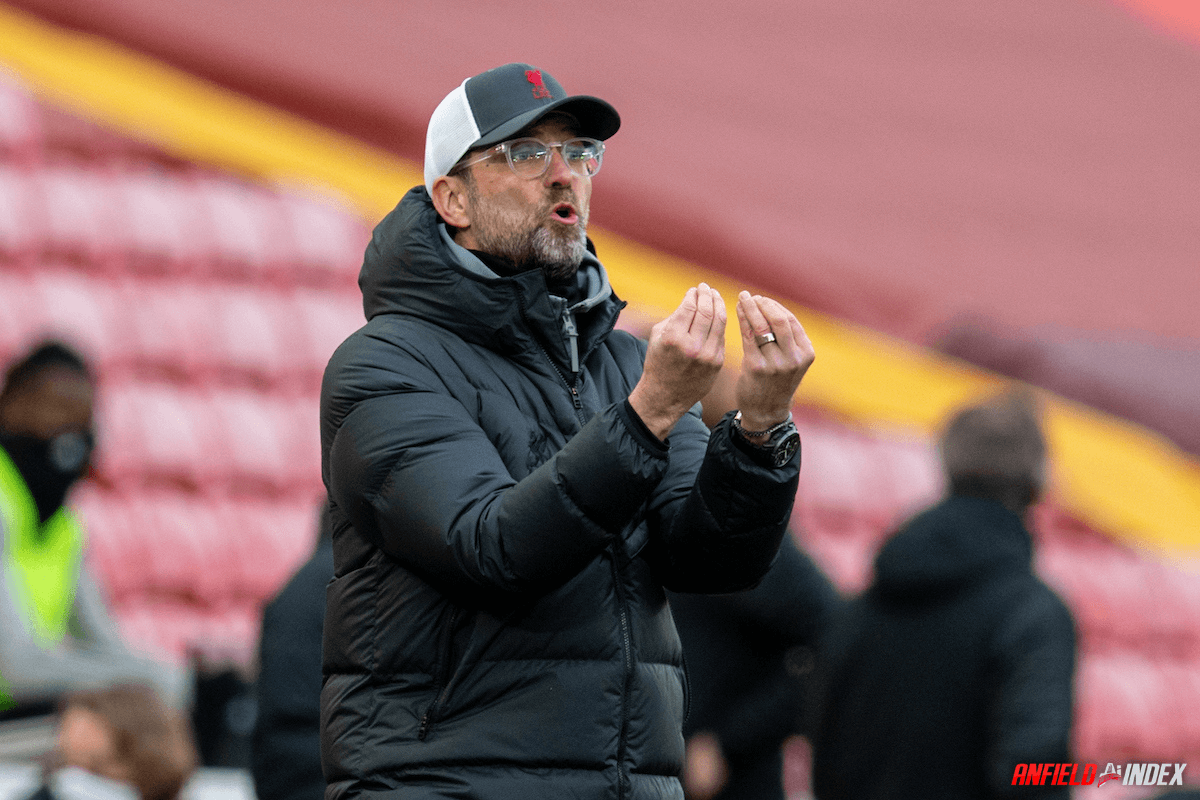After a couple of days of speculation, the plug was officially pulled on the half-baked European Super League idea last Tuesday.
With thermonuclear levels of furore — from managers, players, politicians and sponsors alike — the architects of the proposed replacement of the Champions League, Andrea Agnelli of Juventus and Florentino Perez of Real Madrid, deemed the project unviable and it will be confined to the dustbin of history. For now, at least.
Liverpool were, of course, among the 12 European clubs listed as founding members, along with five other English clubs. Club owner John W Henry took to the six times European Cup winners official Twitter account on Wednesday to apologise for his role in the creation of the European Super League(ESL), a concept that is totally incongruous with the values of a club that is — whether people like it or not — steeped in socialism.
Jurgen Klopp, the Reds’ manager — repeating the public stance he took in 2019 — was the first to air his opposition to the plans from a Liverpool perspective. The German said, when speaking to the Sky Sports cameras ahead of last Monday’s game away to Leeds United, he was totally against the idea and that he would try his best to see the decision reversed.
Whether Klopp’s objections forced the owners to change tact and climb down from their commitment to the ESL is something we may never know. What is abundantly clear, however, is that the former Borussia Dortmund coach — who is beloved by the club’s fanbase — is the most important figure at Liverpool and the club’s owners would be wise to realise that.
While Fenway Sports Group(FSG) deserve huge credit for turning around Liverpool’s fortunes since their purchase of the club in 2010 — and their cackhanded attempts at forming a breakaway competition with Europe’s other elite clubs doesn’t change those facts — it was Klopp who acted as the accelerant to turn their monetary policies and management philosophies into tangible, on-field success.
The Reds — this injury-ravaged season excepted — are in the midst of a trophy-winning cycle, having added the 2019 Champions League title, the European Super Cup, the Club World Cup and, after a 30-year gap, the 2019/2020 Premier League title.
Everybody deserves a portion of the credit for adding more pots to the trophy cabinet at Anfield, but it is Klopp who deserves the lions share of the acclaim outside of the playing personnel. Liverpool, after all, have spent comparatively little relative to their rivals over the course of the last few seasons but have still managed to operate at the highest of levels. This is on the manager.
You could say that the German was attracted to the club by FSG and their view of the game — Klopp turned down Manchester United because their chairman, Ed Woodward, described Old Trafford as the Disneyland of football and this barefaced commercialism didn’t appeal to his football romantic heart — and that, by that measure, he is incarnate of the ownership group.
But the attempted establishment of the breakaway European competition — where the rich clubs would enjoy a huge level of privilege, regardless of on-pitch performances — flies in the face of Klopp’s views of football, the kind of perspective that makes the German such a brilliant fit at a club like Liverpool.
It was entirely poor form to make the manager — especially during the build-up to an important game in the context of the chase for Champions League football, a competition where the entrance to has to be earned — front up to the media and answer questions about an idea he didn’t contribute to, wasn’t consulted over and is dead set against. It could also prove ruinous to Liverpool’s future hopes, given they dropped two points against Leeds where a win could have moved them into the top four, if only temporarily.
Going forward, FSG will need to reassess their strategy. The ESL, much to the delight of most football fans, didn’t see the light of day but that doesn’t mean that the status quo — where oil clubs like Manchester City and Chelsea, backed by a country and an oligarch respectively, can spend with impunity — is desirable.
Liverpool, at least financially, cannot compete with these clubs, unless there were restrictions — like those baked into the terms of the ESL — on spending, given the UEFA’s financial fair play, FFP, is easily circumvented by clubs who are okay with thinking outside the box in order to succeed.
Given the gap in resources, the Reds will need to be smart to compete and the astute move from the owners perspective would be to consult the manager — and, by extension, the club’s, coaching analytics and scouting teams — on all footballing decisions. Klopp is, after all, the most important figure at the club and FSG owe their success to him.




The phrase is ‘change tack’ not change tact, look it up!